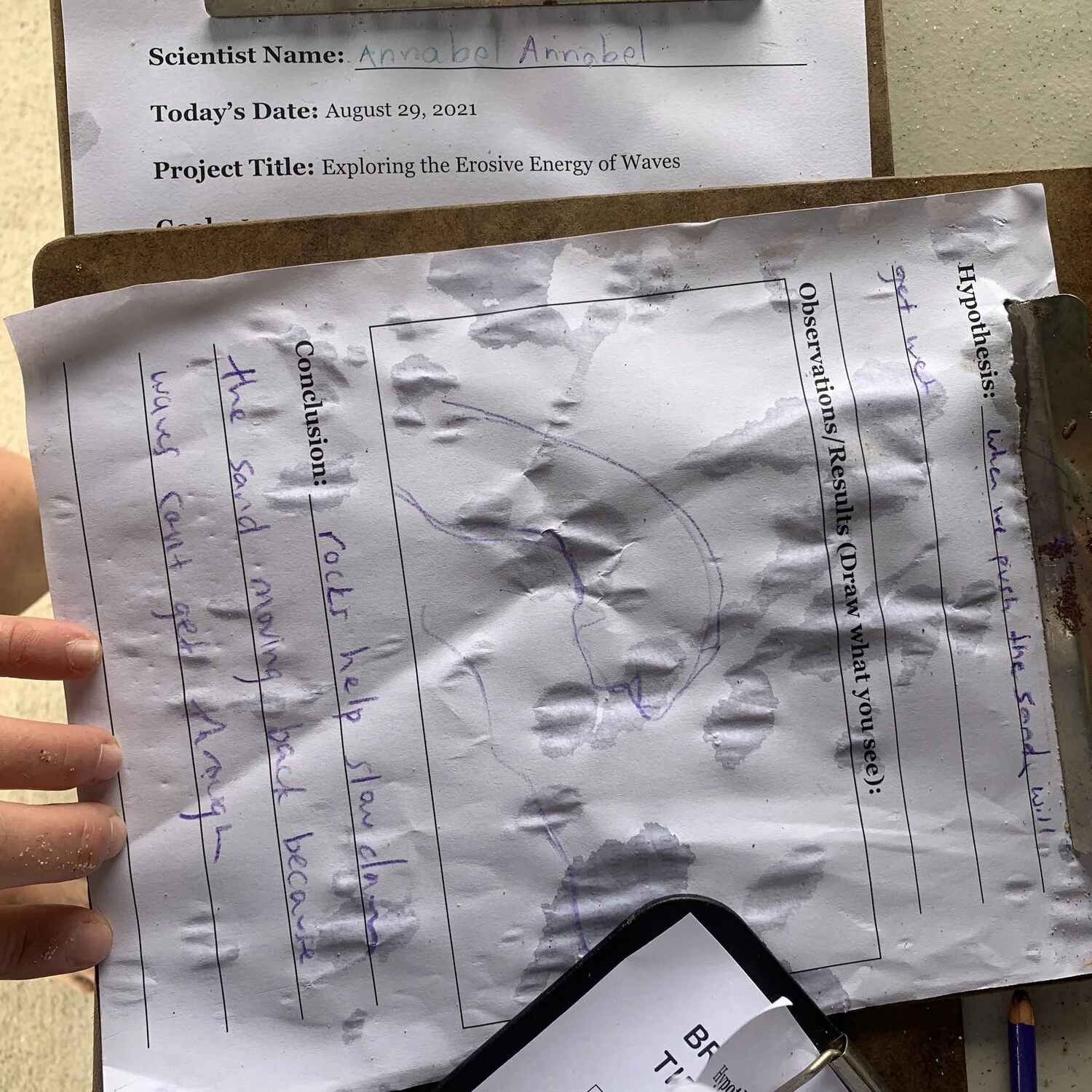On the morning of July 7th, 2024, Seaside Center Naturalists stumbled upon an amazing sight during a low-tide walk: a northern lined seahorse (Hippocampus erectus) visible in the water, swimming over the sand. When a visitor spotted the animal, they pointed it out to the Seaside Center Naturalist, allowing us to carefully collect the animal. If you notice something amazing like this during the summer, always tell a naturalist instead of trying to handle the animal yourself! This is the first time in recent years, according to our records, that H. erectus has been collected, and is an amazing sign for the biodiversity of the sound.
However, regular visitors reading this will be aware that we did not have a seahorse on display in our exhibits this summer, and may be wondering; what happened to the amazing animal we collected that morning?
Here’s the story of one of our most exciting summer visitors, and the reason for their return to the sound:
Seymour the Seahorse
When we collected the animal, nicknamed “Seymour” by the visitor who first noticed it, they were quickly placed into our Tidal Flat tank. Each of the tanks at the Seaside Center has a name to reference the local ecosystem it represents, and our Tidal Flat tank, much like the tidal flats of the estuary in our backyard, serves as a safe refuge for baby fish and our more delicate animals. During the summer, small baby pufferfish and flounder can be found in this tank. This tank also houses northern pipefish, an animal related to the seahorse with a similar looking face! If you have a moment, stop by and take a look at these gentle fish.
Seymore likely felt right at home with their pipefish “cousins” in our recreation of their outdoor ecosystem, and no doubt enjoyed the provided meals and absence of predators. While we were confident in our ability to care for this animal, the first thing we did after acclimating them to our tank was research! We learned some amazing things about H. erectus.
Getting to know the Hippocampus erectus
The “northern” or “lined” seahorse, H. erectus, can live and breed in an estuarine habitat (Teixeira et Musick, 2001), such as that of Long Island Sound! They eat amphipods and, particularly when newly born, copepods (Teixeira et Musick, 2001). This animal is listed as vulnerable according to the IUCN red list, with its population noted as currently decreasing due to threats such as residential and commercial development, biological resource use, and pollution (Pollom, 2017). H. erectus is also a sexually monogamous species, which means that they form pairs and will return to their bonded partner for long periods of time in order to reproduce (Lin et al. 2021).
Returning to the Sound
Seymore stayed with us for about 3 days before being released during the same tidal and weather conditions in which they were found.
Why did we set them back in the wild, instead of keeping an exciting seahorse in our summer display?
Well, we are hoping that one day, this rare and thrilling sight won’t be so rare! It is such a good sign for the sound that we are seeing animals like this. In the past, issues like hypoxia and water quality concerns had severe impact on the ecosystem (Long Island Sound Study, Hypoxia, 2024), and increased biodiversity including the return of native species like H. erectus is something very wonderful. By keeping all members of this species in the wild, the population of H. erectus has a better chance of establishing itself. Removing one, even into the safety of our tanks with professional wildlife carers, would take away from this populations chance to grow and continue establishing itself in these waters.
Also, as mentioned above, these animals are often monogamous. They will return to their mated pair over seasons, and their mating season spans the summer. Releasing this seahorse ensures that we are not splitting up a bonded pair. Seymour was even named due to their ability to contribute to the seahorse population, as our visitor is hoping that thanks to Seymour, we will See More seahorses in the future, and this is only possible if Seymour is in the sound!
So, what should you do if you see a Seahorse?
Our advice is to admire it from a distance that is safe to the seahorse. Don’t attempt to catch or handle these creatures, and especially don’t put them in beach buckets where water oxygen and temperature can quickly change to dangerous levels. These are delicate and beautiful animals that we would like to ‘see more’ of, and with your help to make the beach a safe space for them, this is very possible!
A naturalist was able to capture a video (below) of an H. erectus swimming in the same location in which Seymore was released. We don’t know if this is the same seahorse, or another one (perhaps even Seymore’s partner!) but either way, we’re so excited to be seeing these unique animals, and encourage everyone to keep an eye out for them.






















